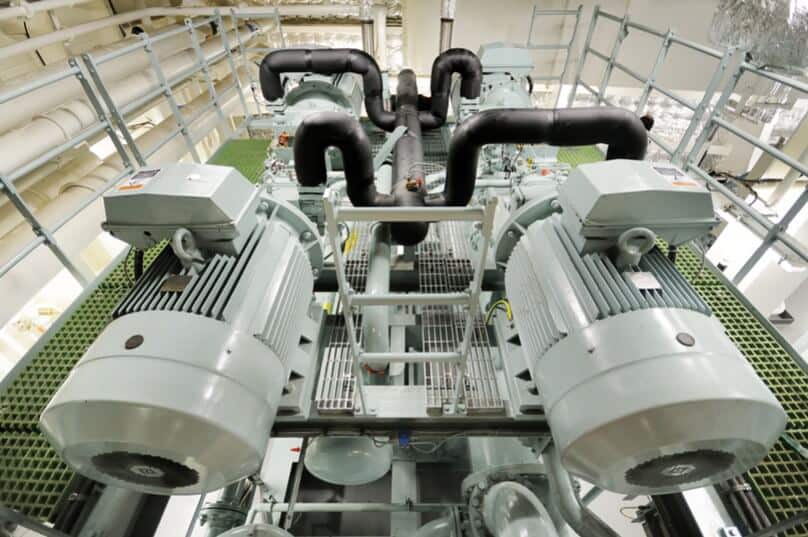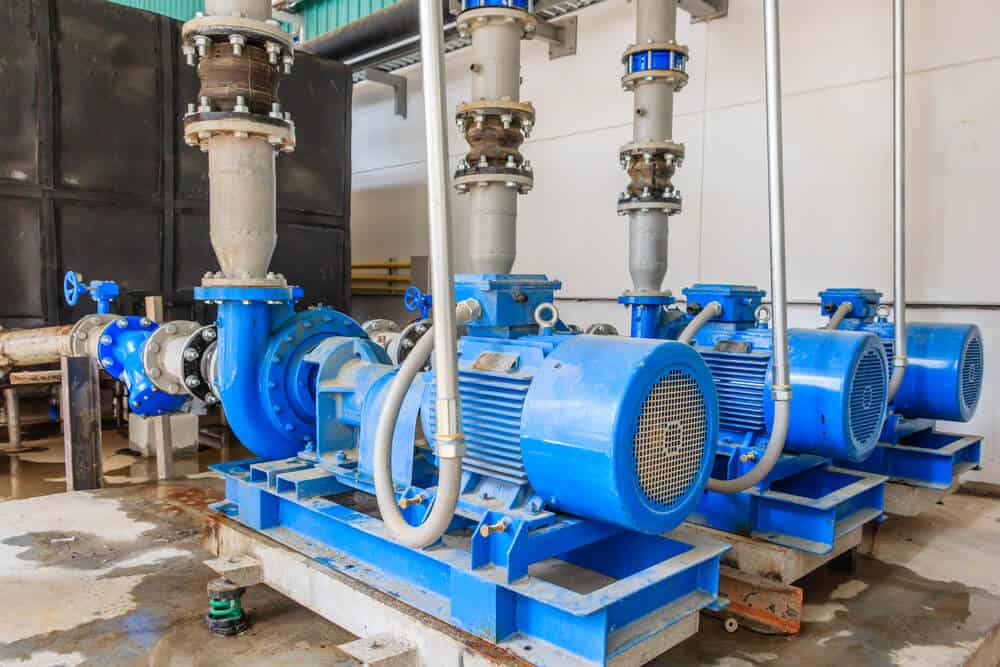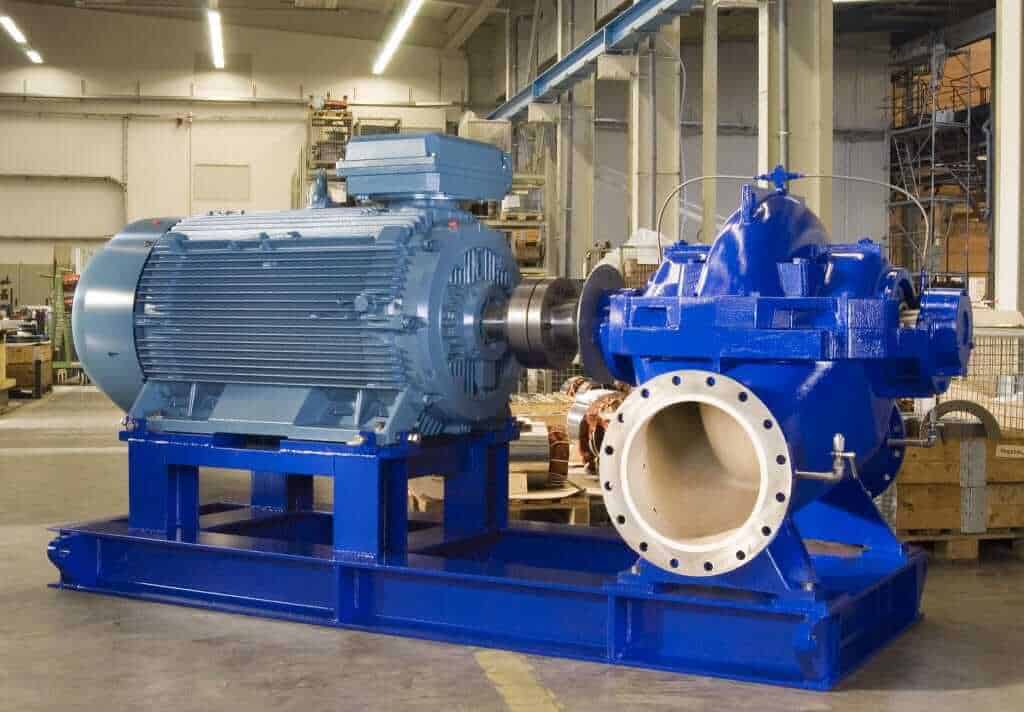Industrial pumps are essential for keeping industrial processes going – so you simply can’t afford to let them fail. Following a proper maintenance schedule is one of the ways to minimise equipment breakdowns. Still, they do occur – even if your machinery is generally well maintained.
So, if one day you find yourself in need of industrial pump repairs – chances are that our experts at Marley Flow Control already have extensive experience repairing pumps in your industry.
Since 2002, Marley Flow Control has been an industry leader in the manufacturing of cooling towers – and a leading provider of industrial pump installation and repair services. We are an Australian owned and operated brand with a wealth of knowledge that has allowed us to work with some of the country’s largest businesses and corporations we are pleased to call our clients.
As industry leaders, we have a high level of expertise and can provide a wide range of services – including pump repair services and cooling tower services. If you need any industrial pump repair services for your equipment, contact our highly experienced team to discuss your options today.
What is an industrial pump?
In general terms, an industrial pump is a heavy-duty pump used to move various types of liquids through a certain distance with required speed.
Industrial pumps are specially designed to be used in harsh conditions. The liquids they move include water, oil, petroleum, various chemicals, slurries and sludges, and wastewater. Industrial pumps are also widely used in the food industry to move foods and beverages.
Main types of industrial pumps
While a wide variety of pump designs exists, the two types that are most frequently used for industrial purposes are centrifugal pumps and positive displacement pumps.

Centrifugal pumps
As the name suggests, a centrifugal pump uses centrifugal force to move liquids. It captures fluid through its suction nozzle into the eye of a bladed rotating impeller. Then the impeller vanes rotate the fluid, generating velocity that enables the liquid to exit the pump on the discharge side.
Centrifugal industrial pumps can move liquids at great speeds and are often used by the process, chemical, and mining industries, as well as the food industry. They are also used in water supply, fire protection and sewage disposal systems.
Since we at Marley Flow Control are experts in cooling towers – and centrifugal pump systems are essential for maintaining an efficient cooling water circuit – we have a wealth of experience when it comes to designing, installing and repairing such pump systems.
Positive displacement pumps
A positive displacement pump moves a fluid by trapping a fixed amount of it – and then forcing that trapped liquid into a discharge pipe. (So, you can also say that the liquid is “displaced”.)

Some positive displacement pumps also use cavities. An expanding cavity is placed on the suction side – and a decreasing cavity on the discharge side. Liquid enters the pump as the cavity on the suction side expands and flows out of the discharge as the cavity collapses.
Positive displacement pumps are used whenever it is necessary to ensure a constant flow of liquid – for example, where high viscosity liquids such as oils or paints need to be dosed accurately and at fixed speed.
Common causes of industrial pump breakdowns
There are many possible causes for industrial pump breakdowns – below we list the most common ones.
Cavitation
Cavitation occurs when there is insufficient pressure at the suction end of a pump. This causes the fluid in the pump to evaporate, creating air bubbles that implode as the liquid moves from the suction side to the discharge side of the impeller. As a result of this implosion, a shockwave is generated that can put significant stress on the pump as it creates both vibration and mechanical damage.

Cavitation can cause significant damage to industrial pumps if it’s not addressed timely. Over time, the affected pump’s efficiency decreases significantly and can ultimately result in pump failure.
The best way to address cavitation is to use a pump that is properly designed for its purpose. However, there are ways to reduce cavitation in existing industrial pumps without necessarily having to replace them.
Vibration
Excess vibration can cause serious damage to a pump.
There are many factors that can contribute to excess vibration. Sometimes, the problem lies with the system design rather than the pump itself. However, often vibration occurs as a result of shaft misalignment – which is best addressed by carrying out proper laser alignment by trusted experts in the field.
Wear
As a heavy-duty piece of equipment, an industrial pump is subject to wear which can be both mechanical and caused by such chemical processes as corrosion.
Other factors, such as fouling (particles settling on the pump’s internal surfaces) can also contribute to excess wear.
Following a proper maintenance schedule is the best way to ensure that your industrial pump does not suffer from excessive wear.
We offer a wide range of industrial pump repair services
As a trusted Australian owned and operated brand, Marley Flow Control offers a high level of expertise combined with an impressive range of products. We perform a wide range of industrial pump repair services, as well as cooling tower services. We successfully repair both Marley brand pumps and a wide range of equipment produced by other manufacturers.
We also carry out laser alignment of industrial pumpsets. Our experienced team has successfully carried out long laser alignments of up to four metres. We have experience working in confined spaces, at heights and in remote locations. After completing a laser alignment, our team will provide you with a comprehensive report showing the change in alignment achieved as a result of our service.
Find out how we can use our engineering experience to help find the right solution for your business needs. Contact us here for a free quote.
